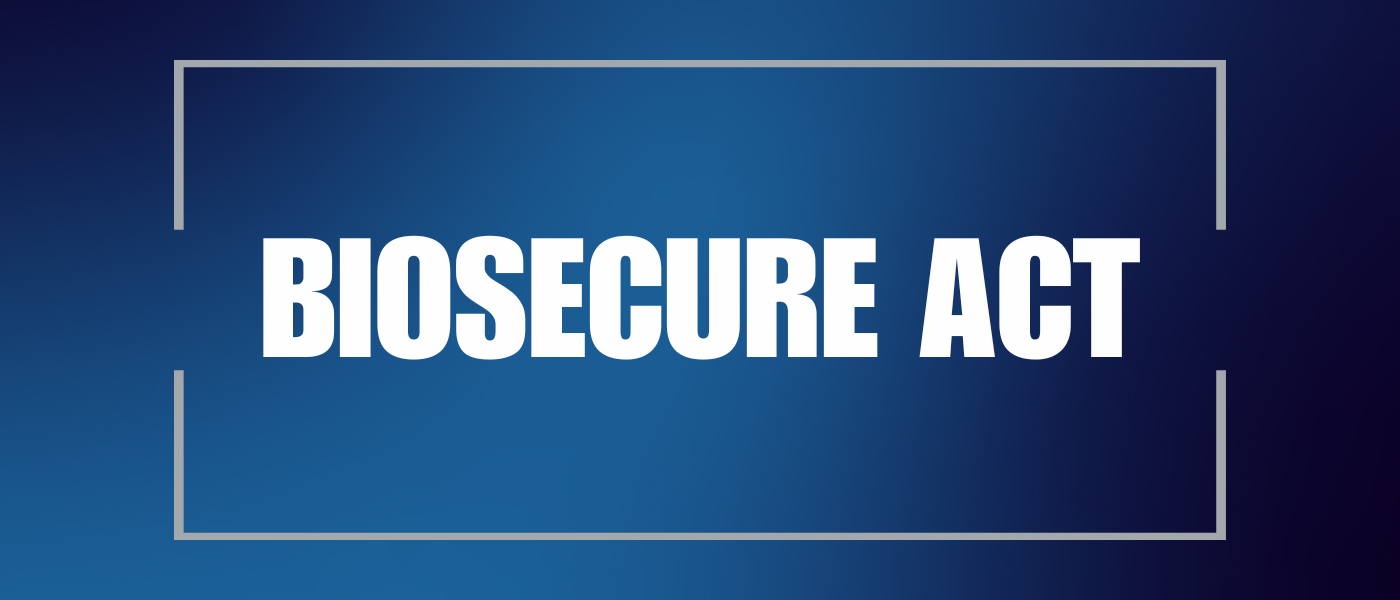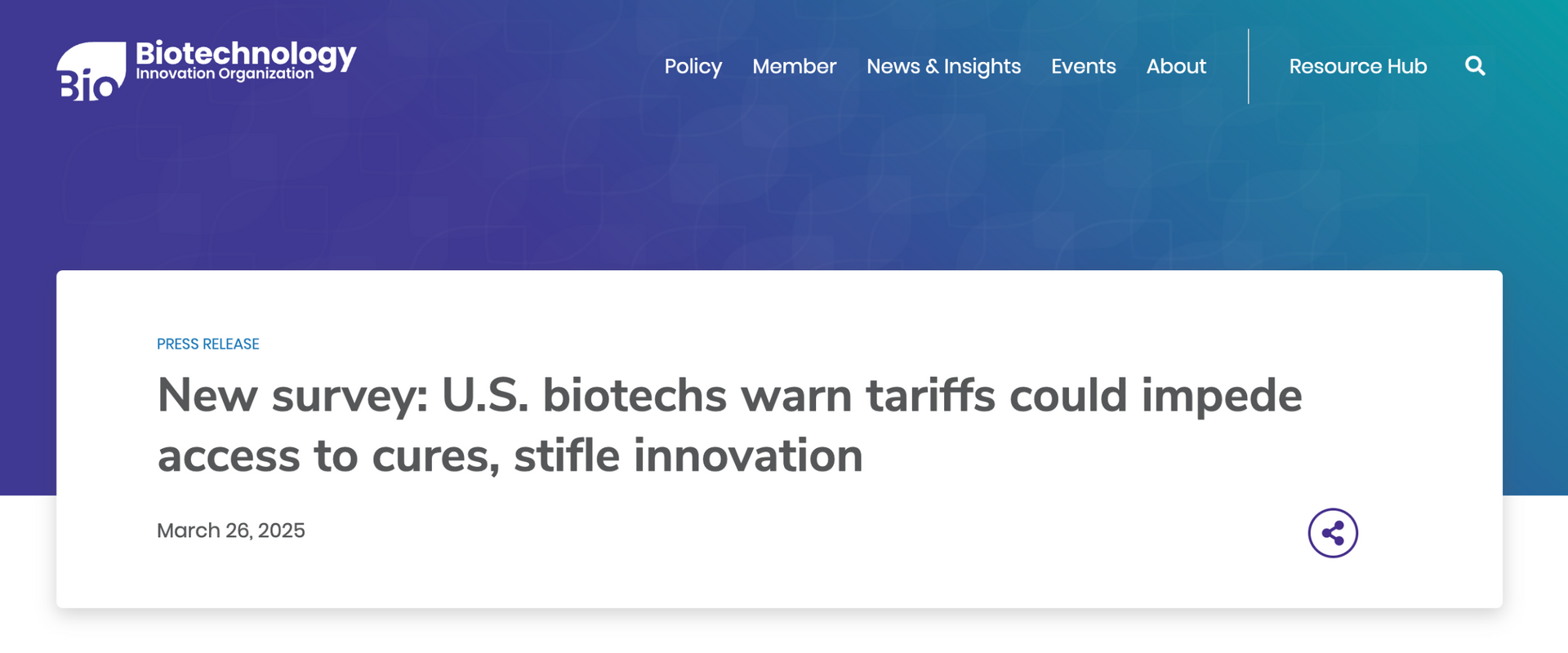House Approves BIOSECURE Act

The U.S. House of Representatives recently passed HR 8333, commonly known as the BIOSECURE Act. The bill passed 306-81, far exceeding the two thirds vote required to pass. The text of this bill was unamended from the version approved by the House Committee on Oversight and Accountability in May (the “House bill”).
Analysts have said the bill is unlikely to pass as a standalone measure in the Senate, meaning it would need the right bill to be tacked onto. It is predicted that later this year it will be added to the Senate version of the annual defense bill, the National Defense Authorization Act (“NDAA”), despite its exclusion from the House version of the NDAA in June.
Among other things, the BIOSECURE Act (the “Act”) would prohibit executive agencies from contracting with any entity where the biotechnology equipment or services of a “biotechnology company of concern” would be used in the performance of that contract. Generally speaking, a “biotechnology company of concern” is a biotechnology company that is headquartered in or subject to the jurisdiction of a foreign adversary’s government and poses a threat to national security. Both the House bill and Senate bill name WuXi Apptec, MGI, BGI, and Complete Genomics as biotechnology companies of concern. The House bill also names WuXi Biologics.
Opponents to the bill expressed concern that the Act could cause supply chain issues, due to industry reliance on these biotechnology companies of concern and a lack of practical alternatives. With or without the bill’s enactment, an L.E.K. Consulting survey reported that 68% of respondents, all of whom represent U.S.-based life sciences companies, were already adjusting their operations with Chinese partners, diversifying the geolocation of their partnerships, and adding background checks for partners. Only 2% of respondents have actually begun an unwinding process with Chinese suppliers.
The language in the House bill contains some mitigating provisions compared to the version of the bill first introduced in January.
Some of these revisions match the Senate bill, and some add additional mitigating elements.
- Companies are given an eight-year grandfathering window. Aligning with the Senate bill, the House bill offers a grandfathering clause for contracts that entities enter into with biotechnology companies of concern prior to the “effective date” of the Act, which is the date that is 60 days after the promulgation of enabling regulations. However, where the Senate bill gives no end date for grandfathered contracts, the grandfathering protection under the House bill would apply only until January 1, 2032.
- A safe harbor provision is added. The House bill offers a “safe harbor” provision that clarifies that “biotechnology equipment or services” will not include those that “were formerly, but no longer, produced or provided by biotechnology companies of concern.” The Senate bill does not contain such a provision.
- “Contract” is defined using the Federal Acquisition Regulation (FAR). The House bill amendment provides a definition for “contract,” which was a previously undefined term in the House and Senate bills. The definition states that “contract” means “any contract subject to the FAR issued under section 1303(a)(1) of title 41, United States Code” – which applies to nearly all government contracts for the procurement of goods and services.
- The operative scope of the prohibition is clarified. The House bill makes it clear that executive agencies may not enter into a contract with an entity in situations where the equipment or services of a biotechnology company of concern will be used in the performance of that contract with the executive agency. This was not entirely clear in the House’s January version of the bill, and the new language makes the House bill and Senate bill substantively consistent.
- A waiver program is introduced. The head of an executive agency may waive the operative prohibitions of the Act, with approval from the Office of Management and Budget (“OMB”). The duration of a waiver is a year, with an option for a one-time 180-day extension.
The current language of the House bill was clearly meant to mitigate its impact on the biotechnology industry and companies that rely on biotechnology companies of concern to operate. The grandfathering clause, safe harbor provision, and the new definition of “contract” are seemingly intended to lessen the impact of the bill, by giving companies time to transition away from dependencies on the services and equipment of biotechnology companies of concern. Nonetheless, the House bill does incentivize companies to transition their businesses to alternative equipment and service providers, and, given the scale of the biotechnology companies of concern, one would expect that in and of itself to have a sizable impact, both on the individual biotechnology companies of concern and on the biotechnology ecosystem generally. That said, the exact size and nature of that impact are still uncertain, as much will depend on how the Act is interpreted by the implementing federal agencies.
At present, companies negotiating with named biotechnology companies of concern should consider entering into the agreement prior to the Act’s effective date, to be sure to benefit from the eight-year grandfathering window offered in the House bill.
RECENT ARTICLES




